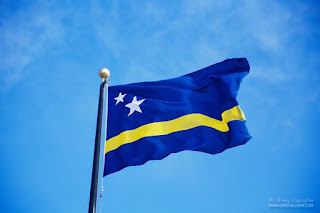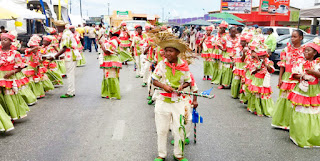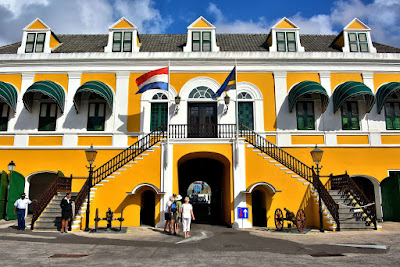History and Politics in Curacao
Islas inutiles, or for those who may not understand the term, the translation means "useless islands." This term was used by the Spanish to describe Curacao and the rest of the ABC islands. When Curacao was discovered in 1499 by the Spanish, they soon realized the island lacked any precious metals such as gold or silver. Seeing the lack of potential in the island, the Spanish sent the Arawak people (original inhabitants of Curacao) to Hispaniola for mining copper.
It would take a century later for the Dutch to intervene and to carry out their plans to conquer Curacao. While the Spanish believed the islands were useless, the Dutch wanted to take advantage of the natural harbor and salt surrounding the island, specifically the island of Curacao. The results were the Spanish surrendering and Curacao being in the hands of the Netherlands.
From that moment, Curacao became very popular in terms of being a central trading port. With the rise in popularity and flourishing business, there were many attempted invasions. During this time, we begin to see a more diverse culture in Curacao. They will allow 50 Jewish people to stay on the island, and due to the slave trade, they will be seeing the arrival of many people of African or Caribbean descent reside on the island. While it may seem Curacao has only been under Dutch rule, there was a time where they were under British rule. It took place during the time of the Napoleonic period, Curacao will be under the British rule from 1800-1815, until the Dutch regain control after the treaty of Paris.
From that point on, Curacao has continuously remained under the Netherlands rule. In 1954, the Netherland Antilles was established. Curacao would be one of the five islands under this political entity. While they were given autonomy in internal affairs, they were still constituents nation in the Netherlands. In the mid-1980's one of the five islands (Aruba) would leave the Netherland Antilles soon after its start, but Curacao would not become autonomous until 2010. Being autonomous meant that Curacao would be able to have its own government and its own status. According to Editon "Curaçao has, since October 10, 2010, a separate status as an autonomous country. It has its own government and is no longer a dependency of the Netherlands Antilles. The Netherlands will, just as it did during the time of the Netherlands Antilles, continue to be in charge of defense, foreign relations, and citizenship. It will also keep a watchful eye on the finances of the island."
Sources Consulted:
“Curaçao.” The Virtual Caribbean Library, ggccaribbean.wpengine.com/listing/curacao/.
Editon. “Curaçao's 7th Anniversary as an Autonomous Country in the Kingdom; Is There Really Something to Celebrate?” Curaçao Chronicle, 10 Oct. 2017, curacaochronicle.com/main/curacaos-7th-anniversary-as-an-autonomous-country-in-the-kingdom-is-there-really-something-to-celebrate/.
Encyclopædia Britannica. “Curaçao.” Encyclopædia Britannica, Encyclopædia Britannica, Inc., 10 Apr. 2019, www.britannica.com/place/Curacao.
Nationaal Archief Curacao. “Curaçao History.” Go to the Top, www.curacaohistory.com/.
Zaken, Ministerie van Buitenlandse. “About Curaçao.” United States, Ministry of Foreign Affairs, 10 May 2017, www.netherlandsandyou.nl/your-country-and-the-netherlands/united-states/about-us/curacao-and-you/about-curacao.






Comments
Post a Comment